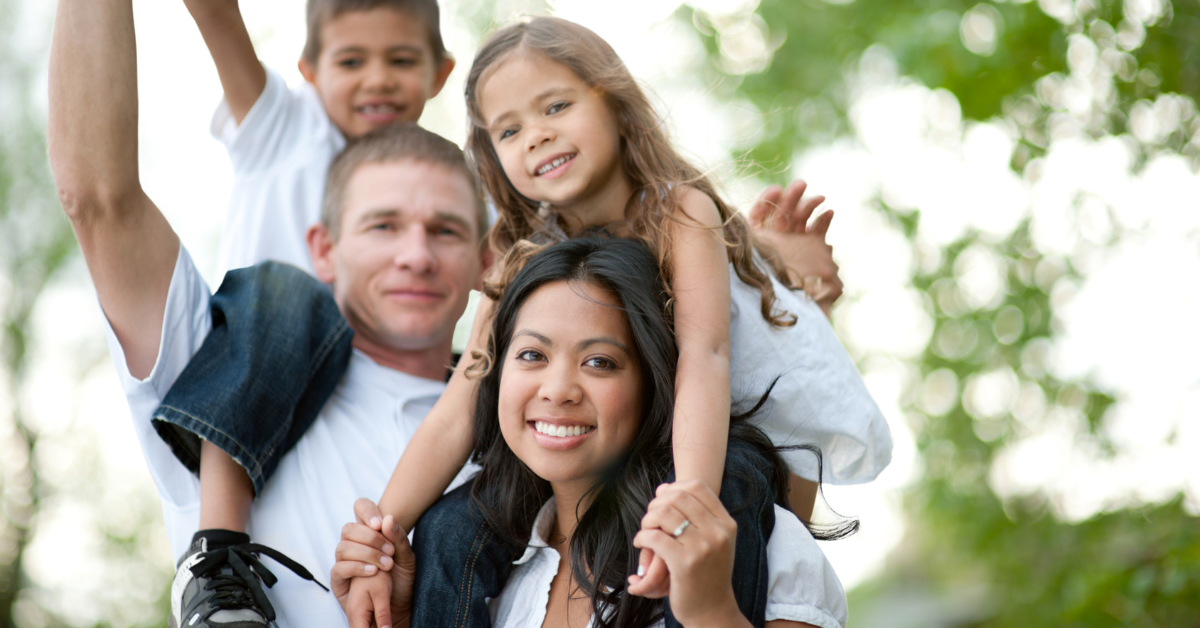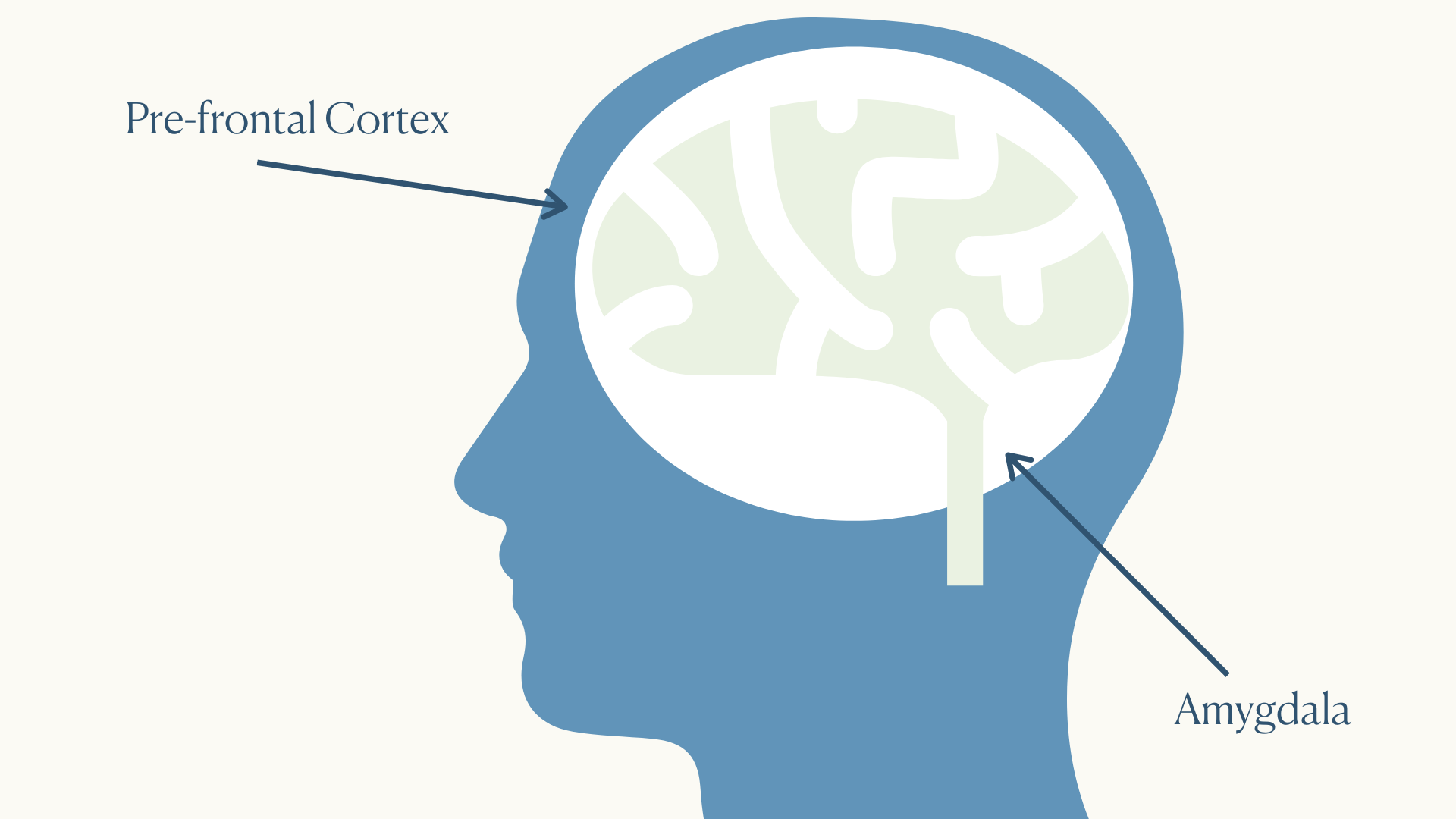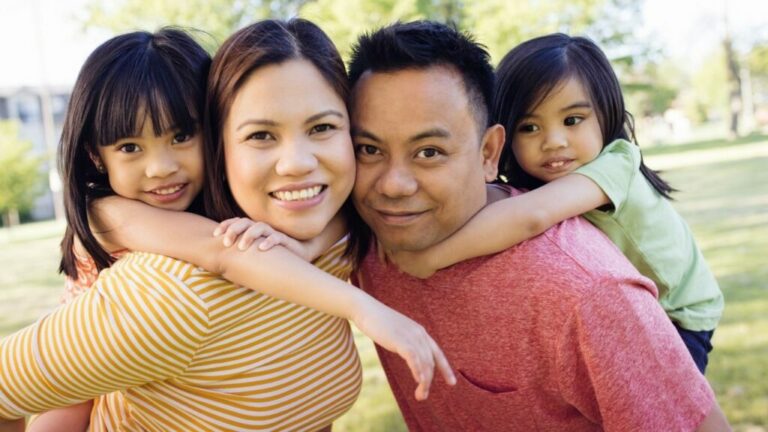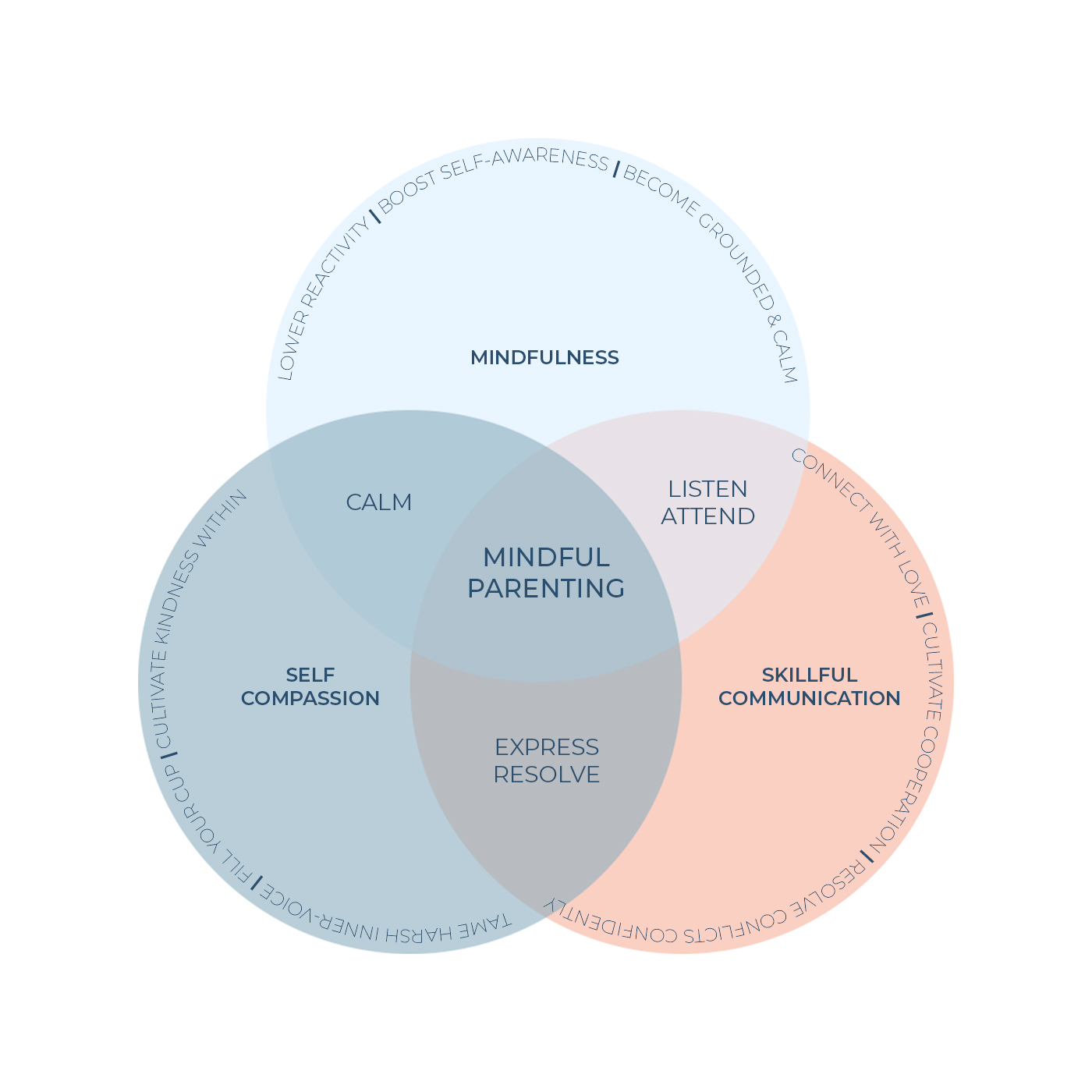
What is Mindful Parenting?
Mindful Parenting is about using the power of mindfulness to calm our reactivity so that we can choose how to respond to our children.
To understand Mindful Parenting, it helps to understand the opposite: our autopilot, reactive parenting. I have an example close at hand—myself:
LOSING IT
When my daughter was two years old and started talking, she immediately pushed back at the way I was parenting her. She resisted, got upset, and I got upset and yelled. I was losing it with her on a regular basis.
In my moments of guilt, I had two choices: I could shame and blame myself, falling into a pit of despair… or I could accept what was happening and learn from it.
So I took my anger and used it as a teacher. I looked at why I was over reacting and getting triggered. I realized that to be the parent I wanted to be, I needed to become calmer and less reactive, and I needed to respond to my daughter with more skillful language that she could model.
I realized that to be the parent I wanted to be, I needed to become calmer and less reactive. Reactive parenting wasn't working.
UNDERSTANDING OUR REACTIVITY
We know that we have a “fight, flight, or freeze,” nervous system, but we often don’t understand how frequently it’s affecting our interactions, or how it impairs our parenting.
Imagine that your child is freaking out about putting on their shoes:
They are whining, and hurling the shoes into the corner. You have to get to work. You just want to get out of the house! You can feel your stress rising.

At this moment, your nervous system is registering your child as a threat, just the same way as our ancient ancestors may have reacted to a pack of wolves circling. Your nervous system reacts by raising your heart rate, tightening your muscles, and preparing you to fight off a threat or flee to safety. You are reactive, not responsive.
This stress response is so fundamental to survival that it bypasses the slower parts of your brain to react as quickly as possible.
STRESS RESPONSE IMPAIRS PARENTING
The problem with this? The parts of the brain that process more slowly are exactly the parts we need to be online to respond effectively to our kids—namely, the prefrontal cortex, or PFC.
Neuroscientists have shown that the PFC regulates attention, thought, and action. Moreover, it inhibits “inappropriate motor responses,” so if we don’t want to yell, or want to be able to choose a more thoughtful response, we really need the PFC to be online.
MINDFULNESS HELPS US USE THE WHOLE BRAIN
Our biology works against us because when we’re under stress, the amygdala in the brain switches away from the slow, thoughtful regulation of the PFC to be able to react reflexively with a rapid, emotional response. We go on reactive autopilot.

When you are under stress, the PFC—the slower, more thoughtful part of your brain—is effectively hijacked by your nervous system.
HOW MINDFUL PARENTING HELPS
Many parenting coaches will tell how to respond, but neglect to teach us how to take care of our stress response so that we can respond not react.
So, when little Elliot throws the shoes and our nervous system feels threatened, we can’t even access the new parenting advice we’ve learned. All that well-meaning guidance that parenting coaches offer flies out the window when our stress response kicks in. We’re left feeling frustrated and blaming ourselves.
So what do we do? How to not react? How do we become a calmer parent?
Understanding how the stress response hijacks the brain, we can see that down-regulating our own nervous system is parenting priority number one.
Mindfulness tools help us calm our reactivity so we can respond compassionately and effectively.

Mindful awareness helps us remember that we are modeling all the time. Mindful Parenting gives us tools to take care of our difficult feelings and practice self-compassion—so we can first walk the talk.
Finally, with the inner work of calming reactivity and practicing self-compassion in place, Mindful Parenting helps us communicate skillfully—so that we don’t repeat harmful generation patterns.
BENEFITS OF MINDFUL PARENTING
- You become better at regulating your emotions
- Positive behavior in kids (study)
- Less anxiety, depression and acting out in kids (study)
- Improves communication between family members
- You become less reactive and choose responses (respond not react)
- Increases compassion and self-compassion
- You become more aware of your child’s thoughts and feelings
MINDFUL PARENTING HELPS PARENTS MODEL EMOTIONAL REGULATION
WHAT MINDFUL PARENTING IS
In Mindful Parenting we use the C.L.E.A.R Method, which stands for Calm, Listen, Express, Attend, and Resolve. Step one, Calm, is about helping to calm those unconscious triggers and calm our stress response. We need habits that steady the heart, the mind, our biology, and our nervous system.
Mindful Parenting is at the intersection of mindfulness, compassion, and skillful communication.
It’s not just “mindfulness for parents” or “how to respond to your kid,” but those coming together to help parents become less reactive, more connected, and more present with our kids for stronger life-long relationships.

If we can’t calm our nervous system and take care of our stress response, our ability to think is greatly impaired. This includes our ability to remember any skills or language or good responses that you’ve learned. You’re unable to be objective and consider a problem realistically.
Communication is a key component of Mindful Parenting. Step two helps us Listen reflectively, creating an authentic connection with our children. Step 3, Express, is about expressing ourselves honestly and effectively as parents.

Step 4, Attend, is about being present. When we are lost in to-dos and rumination, we aren’t really there, and we can’t relate or resolve problems at all.
Finally, step 5 is about Resolving problems based on meeting everyone’s needs, rather than authoritarian orders and threats which only cultivate resentment and disconnection in children.
MINDFUL PARENTING MANIFESTO
A new generation of parents is changing old, harmful paradigms and parenting in a more peaceful, conscious way that respects everyone’s needs.
Is this for you?
Check out the Mindful Parenting Manifesto below and let us know if it speaks to you!

A Mindful Parent is a new generation of parent.
Present, Evolving, Calm, Authentic, and Free.
Mindful Parents reject the culture of “not good enough,” knowing that when we free ourselves from stress and limiting stories, our authentic, peaceful nature shines through.
Mindful Parents practice self-compassion and see their challenges as teachers, not flaws.
A Mindful Parent values wisdom over reactivity, empathy over obedience, and begins anew every day.
Mindful Parents live what we want our kids to learn, knowing that the best parenting is in modeling.
Mindful Parents go within and get quiet to access their power.
Mindful Parents:
- Practice presence
- Create their experience
- Embrace imperfection
- Love themselves
Mindful Parents are motivated knowing that with every step they are changing things for the generations that follow.
I am a Mindful Parent.
